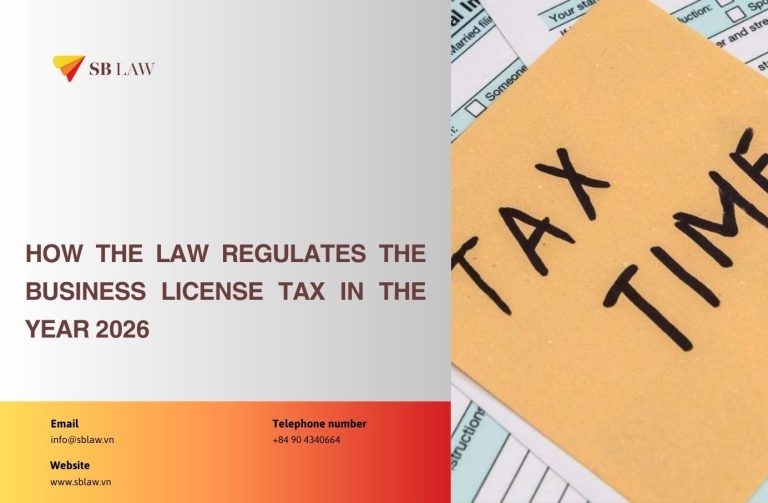My husband is a sales employee at Company B. He signed two (02) fixed-term labor contracts, each for a 02-year term, commencing on 01 March 2020. The second contract expired on 29 February 2024. However, he continued to work normally after that date without signing a new contract. On 10 October 2025, the company suddenly notified him that he must stop working in early 2026, reasoning that the company “no longer has a need to employ him for the next year”. I would like to ask: is Company B’s action requiring my husband to stop working in violation of the law?
Answer:
1.Determining the current type of Labor Contract
Pursuant to Point c, Clause 2, Article 20 of the 2019 Labor Code (LC 2019), an enterprise and an employee may only sign a fixed-term labor contract a maximum of two (02) times. After the second fixed-term labor contract expires, if the employee continues to work, the two parties must sign a new labor contract within 30 days from the expiry date. If no new labor contract is signed, the second (expired) contract automatically becomes an indefinite-term labor contract. In your husband’s case:
- 1st labor contract (02 years): From 01 March, 2020 to 28 February, 2022.
- 2nd labor contract (02 years): From 01 March, 2022 to 29 February, 2024.
As of the end of 29 February 2024, the second labor contract expired. If your husband continued to work after this date without signing a new contract, then after 30 days (i.e., from 31 March 2024), the labor contract between your husband and Company B automatically converted into an indefinite-term labor contract, in accordance with Point b, Clause 2, Article 20 of the LC 2019.

2.Analysis of Company B’s notification of labor contract termination
On 10 October 2025, Company B notified your husband to stop working in early 2026, citing the reason that it “no longer has a need to employ him for the next year”. However, at this time, your husband’s labor contract had already become an indefinite-term labor contract. Legally, an indefinite-term labor contract does not have a specific end date; it does not “expire” at the end of the year or on a fixed date. The reason “no longer has a need” provided by Company B has no legal basis for terminating an indefinite-term labor contract. Thus, this notification from Company B, regardless of what it is called, is, in essence, an act of unilateral termination of the labor contract by the employer.
Pursuant to Article 36 of the LC 2019, an employer only has the right to unilaterally terminate an indefinite-term labor contract in one of the statutorily prescribed cases. For example, the employee frequently fails to complete their work; health reasons; natural disasters, epidemics; or the employee reaches retirement age; the employee quits without authorization... Notably, the LC 2019 does not permit an employer to unilaterally terminate a contract merely because they “no longer have a need for the employee”. This reason is not among the lawful grounds listed in Article 36.
Therefore, the company’s stated reason of “no longer having a need for the employee” is inconsistent with any legal basis for lawful contract termination under the LC 2019.
3.Legal conditions for the “lack of need” reason
If the company wishes to terminate the contract prematurely, it must fall under one of the cases permitted by law, or must proceed according to the termination procedure for restructuring, technological changes, or economic reasons as stipulated in Clause 11, Article 34 and detailed in Article 42 of the 2019 Labor Code, which has strict conditions such as: (i) must prove the reason; (ii) develop a labor usage plan. However, to lawfully unilaterally terminate the labor contract for this reason, Company B must strictly adhere to a rigorous legal procedure, including:"
(i) Must have a genuine reason: It must be proven that there are organizational changes, labor reorganization, or genuine economic difficulties (such as crisis, recession, implementation of state policy) leading to personnel reduction.
(ii) Must develop a labor usage plan: According to Article 44 of the LC 2019, the company must develop and implement a “labor usage plan”, which prioritizes retraining and reassigning the employee to new work. The labor usage plan must be discussed with the grassroots-level employees' representative organization (if any). Concurrently, this plan must be notified to the provincial-level People’s Committee or the Department of Labor, War Invalids and Social Affairs. Only if new employment cannot be provided is the employer permitted to terminate the employee.
Company B’s action of merely issuing a verbal or simple written notice based on “lack of need” without proving these conditions and without following the aforementioned procedure is not a sufficient legal basis for terminating the labor contract.
4.Conclusion
Company B’s conduct shows signs of a serious violation of labor law. The company appears to have misunderstood the type of labor contract; they assumed it was still a fixed-term labor contract that they had the right not to renew, when in fact, it had automatically converted into an indefinite-term labor contract. Therefore, terminating an indefinite-term labor contract for the reason of “lack of need” constitutes an unlawful unilateral termination of the labor contract, unless the company can prove it has fully completed the steps for restructuring or economic reasons under Article 42 and Article 44 of the LC 2019. In this case, if the contract is terminated unlawfully, your husband has the right to demand that the company fulfill its obligations under Article 41 of the LC 2019, including: reinstatement, payment of salary for the days not allowed to work, and compensation of at least two (02) months’ salary
Consultation: Labor Consulting Lawyer Service




